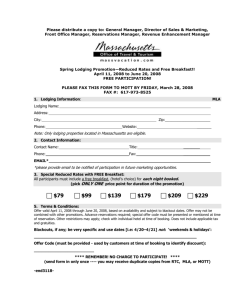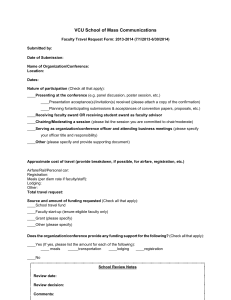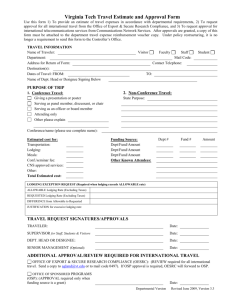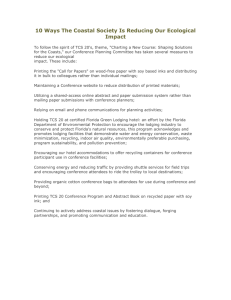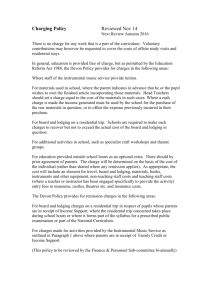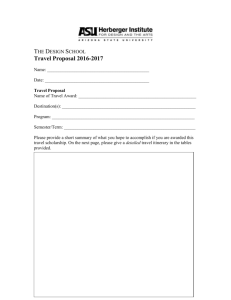Supply Services
advertisement
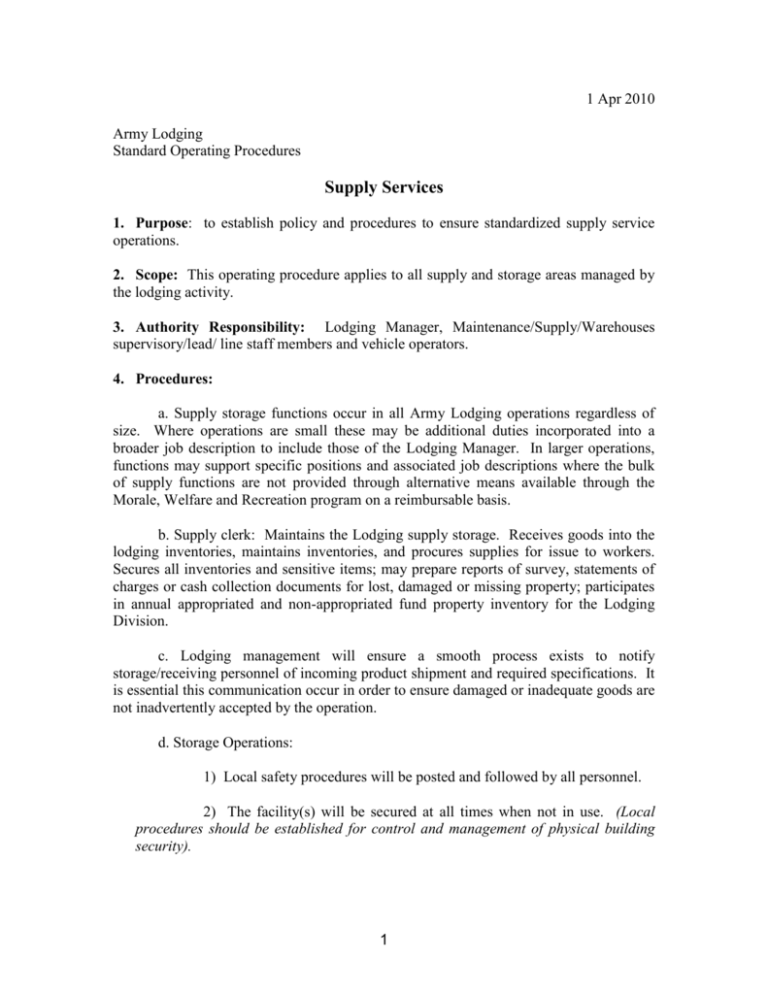
1 Apr 2010 Army Lodging Standard Operating Procedures Supply Services 1. Purpose: to establish policy and procedures to ensure standardized supply service operations. 2. Scope: This operating procedure applies to all supply and storage areas managed by the lodging activity. 3. Authority Responsibility: Lodging Manager, Maintenance/Supply/Warehouses supervisory/lead/ line staff members and vehicle operators. 4. Procedures: a. Supply storage functions occur in all Army Lodging operations regardless of size. Where operations are small these may be additional duties incorporated into a broader job description to include those of the Lodging Manager. In larger operations, functions may support specific positions and associated job descriptions where the bulk of supply functions are not provided through alternative means available through the Morale, Welfare and Recreation program on a reimbursable basis. b. Supply clerk: Maintains the Lodging supply storage. Receives goods into the lodging inventories, maintains inventories, and procures supplies for issue to workers. Secures all inventories and sensitive items; may prepare reports of survey, statements of charges or cash collection documents for lost, damaged or missing property; participates in annual appropriated and non-appropriated fund property inventory for the Lodging Division. c. Lodging management will ensure a smooth process exists to notify storage/receiving personnel of incoming product shipment and required specifications. It is essential this communication occur in order to ensure damaged or inadequate goods are not inadvertently accepted by the operation. d. Storage Operations: 1) Local safety procedures will be posted and followed by all personnel. 2) The facility(s) will be secured at all times when not in use. (Local procedures should be established for control and management of physical building security). 1 3) The supply clerk will maintain bin cards as a working backup to the stock record cards maintained by administrative staff or the NAF servicing accounting office. Vin cards will reflect all supplies/materials added to and or taken out of inventory to ensure adequate control of stocks/supplies. An approved automated system can take the place of stock records and bin cards. e. Supply Management: 1) Storage: a) Storage areas for all consumable, expendable, fixed asset float, and sensitive items shall be identified within the lodging operation and maintained in a secure fashion. b) Acceptance will be reflected on the DD Form 250, Receiving Report or DA Form 4067-R, Purchases Order or signature on the vendors invoice. Received goods will immediately be moved to the appropriate secure storage area. c) Upon receipt of supply items (Establish local procedures for updating stock record and bin cards). f. Damaged Items and Concealed Losses: (Establish procedures for the identification, control and or disposition of these categories). 1) Damaged fixed asset items will be recorded or logged on a listing and brought to the attention of the maintenance supervisor. Assets, which are no longer serviceable, will be disposed of in accordance with AR 215-1 and DOD 7000.14, Appendix A Chapter 4. 2) Completed reports will be forwarded to the Accounting Office for adjustment of accounting records. 3) Claims will be initiated with Contracting Officer or the procurement source for damaged, over, or short shipments, and concealed losses before paying invoices on them. g. Requests of Issue or Turn-in. All requests for supplies will be made on a DA Form 3161 (Request for Issue or Turn-in). h. Issuing of Supplies: Upon receipts of Supply Requisition Form, the supply person will either fill the request from stok on hand or take action necessary to procure the material so that the date material is required can be met. i. Authorized Stock Levels. See Par Stock SOP. j. Self Service Supply Center. 2 1) Supplies necessary to sustain Lodging Division operation will be stocked from GSA or CFSC established consolidated contracts whenever possible. 2) Stock Records: Stock records will be reconciled to each physical inventory. Variances between actual inventory counts and stock records will be documented. 3) Inventory Procedures. (Refer to SOP for procedures) 5. Local Supplement Designated storage areas Local disposition for receiving, issue and turn-in reports Local procedures for receipt of damaged or incorrect goods. 3
